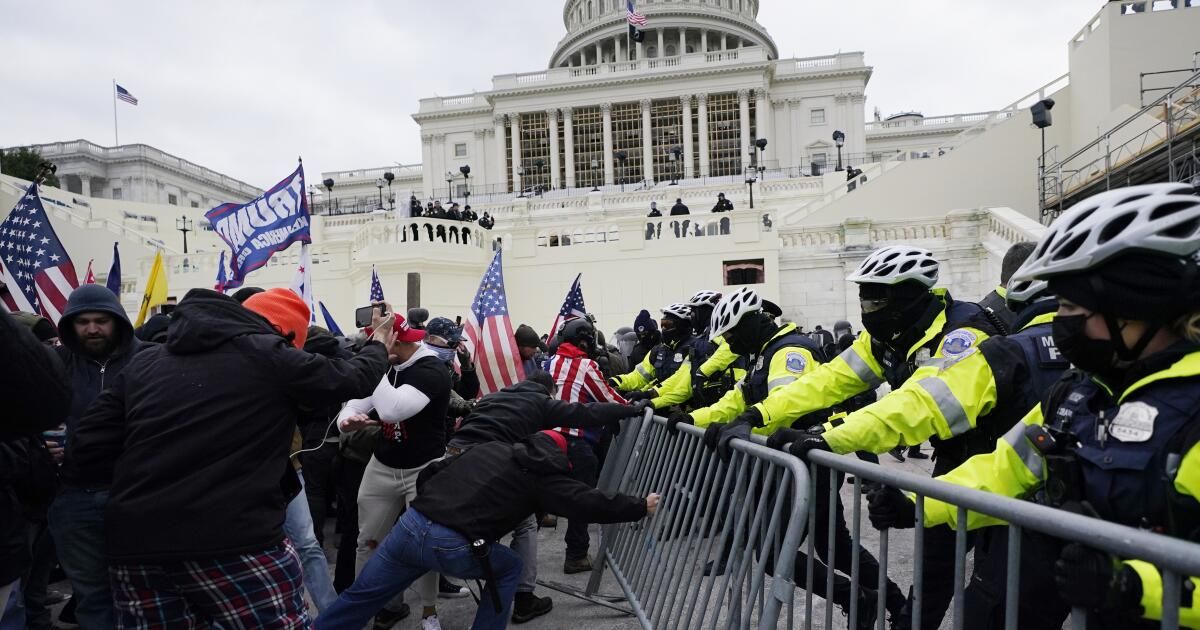To the editor: It's a shame that the Civil War didn't end racism along with slavery, and it wouldn't have been so difficult if Reconstruction had been allowed to develop on its own. The 14th Amendment, which is now at issue in the issue of disqualifying former President Trump from the election, was its cornerstone. (“Why the Supreme Court will likely put Trump back on the ballot in Colorado and across the country,” Opinion, Jan. 8)
Race is a social and ethnic construct, not a genetic one, and during that time all kinds of truths were becoming evident. At one point in the 1870s, the majority of members elected to the South Carolina Legislature were black. At that time the suffrage of women and non-proprietors was seriously discussed.
The defeat of courage by cowardice has always been this country's most terrible failure, and it appears that we will allow the 14th Amendment to once again not apply. Trump and his fellow insurrectionists will probably be allowed to run, I have no doubt. It's discouraging.
Ronald Webster, Long Beach
..
To the editor: I think a lot of people fail to draw what seems to be the logical conclusion from the intent of Section 3 of the 14th Amendment.
It does not change any of the qualifications the Constitution requires to hold these government positions, but it adds an exception for a very specific and extremely dangerous situation.
In the case of the office of president, the Constitution does not exclude a candidate who has been arrested, convicted, or is in prison for having committed a crime. The 14th Amendment does not change that.
This amendment applies only to those who took an oath to the Constitution and did not abide by it. It is a matter of honor and integrity. This rule has nothing to do with crime.
Within government, officials are given power that can have far-reaching effects; The only thing the Constitution asks in return is to honor the oath sworn to you.
Since this is not a criminal proceeding in which someone could lose their liberty, the “due process” standard is not an issue. However, the amendment gives a disqualified person a second chance to demonstrate his or her new trustworthiness by asking Congress to remove the restriction on him or her.
What other criminal or civil proceedings offer that type of relief?
Bill Lawrence, Hawthorne
..
To the editor: I think the US Supreme Court will, and should, allow Trump to be on the ballot, but not for the reason stated by columnist Harry Litman. Our justice system is based on the idea of “innocent until proven guilty,” and I believe that should still be followed.
As much as he hates Trump and everything he stands for, he is innocent for now.
Litman's reasoning that the justices will put Trump back on the ballot because they “reluctant to allow a fragmented result” is contrary to what I believe is the court's role. Its function is to determine whether the laws that have been approved violate the Constitution.
I know of nothing in the Constitution that prohibits a “mosaic.” The author even mentions that control over voting is given to the states, which apparently allows for variations.
Jay Michtom, Northridge











